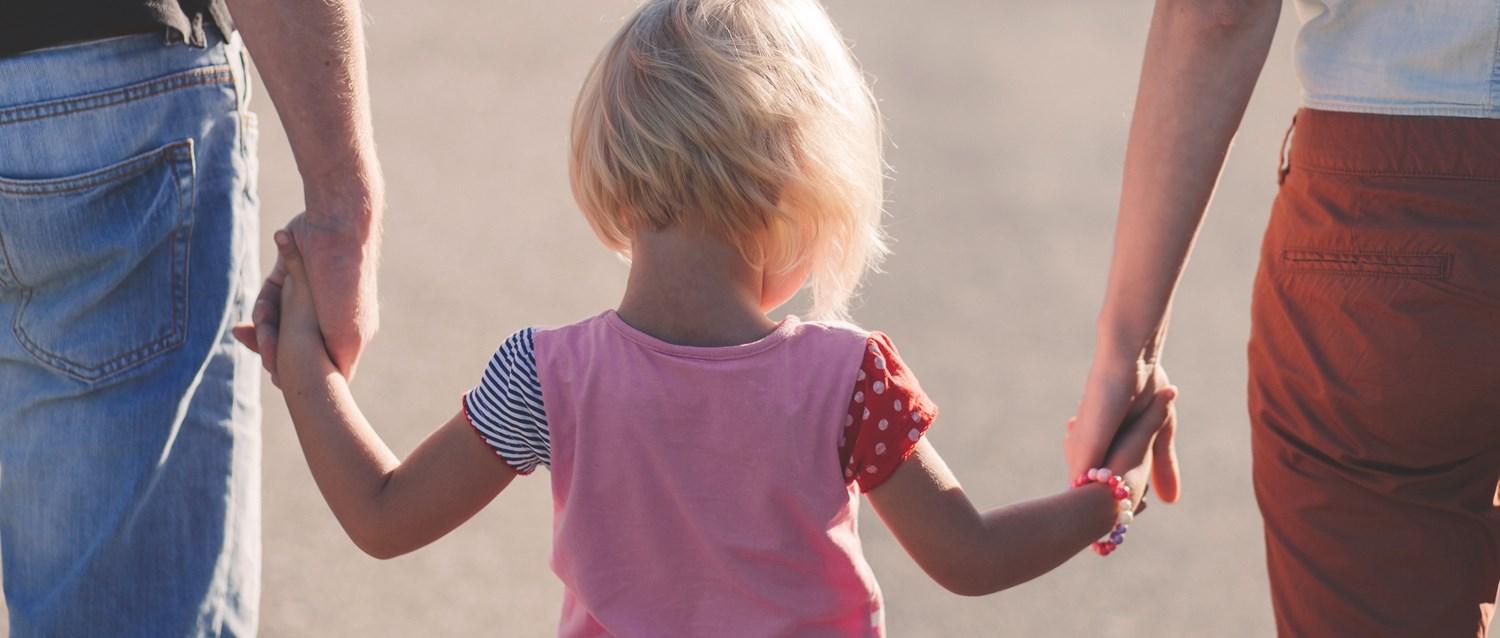
Can counselling help you decide when or whether to have children?
Peer reviewed by Dr Sarah Jarvis MBE, FRCGPLast updated by Sally TurnerLast updated 24 Sept 2020
Meets Patient’s editorial guidelines
- DownloadDownload
- Share
- Language
- Discussion
Is there ever a 'right' time to have children? And how do you know whether having children is the right decision for you? We talk to the experts about how counselling and relationship therapy can help in making these decisions.
In this article:
The average age of a first-time mother in the UK is now 30, according to Office for National Statistics, with men entering fatherhood on average at 34. Most people will opt to have children and '2.4 kids' is still the size of the average family.
However, the number of women not having children has doubled in a generation and currently stands at around 18%. Approximately 15% of all families are single-parent households and the number of same-sex couple families has doubled since 2017.
These statistics reflect general trends and influence what we think of as the norm. But ultimately the decision on when or whether to have children is a very personal one and is not always easy to make.
Continue reading below
Factors in the decision
Kate Moyle is a psychosexual and relationship therapist and host of The Sexual Wellness Sessions Podcast. She says there's no 'magic formula' that can help decide when or whether to have children, but there are some common factors that may be useful to consider.
"Some people may make the decision to start trying to conceive because they've reached a particular age or life stage where they feel ready in terms of job and living stability," she says. "Others may find out they are pregnant and then come around to the idea. There is no one size fits all for when you are 'ready'."
Dee Holmes is a senior practice consultant at Relate. She says sometimes people have a plan for when to have children, but changing circumstances can make it difficult to meet expectations.
"Sometimes women haven't met the right person to have a family with as they get into their late thirties which can be challenging," she comments. "We all know people who haven't planned on getting pregnant and it's just happened and all turned out fine for them. But equally, going it alone, or without being prepared, can have major challenges practical and emotional."
How counselling can help
"Thinking about starting a family, or struggling to start one, can be emotional and very loaded," says Moyle. "The process ties strongly into our expectations of ourselves and what we thought our lives would look like. For some people this can bring up a lot of challenges."
For some, the decision may involve serious discussions about what life will look like in terms of work, childcare and shared values. These are important conversations to have and working through them with a counsellor can be helpful.
"The right counsellor or therapist can provide a safe space for you to unpack your thoughts and feelings about what's going on," Moyle continues. "That's an option for both couples and individuals."
Holmes adds that seeing a counsellor as a couple can be useful as the counsellor can listen to both perspectives and help each person really listen to the other.
"A counsellor can help you each consider your own belief systems about having children and even enable you to understand feelings you may not have addressed," she explains.
There may be fears that have been unspoken and a counsellor can help bring these into the open.
"I've counselled couples where one partner will say 'I don’t want children', but the person may not even really know why they're holding that view. They may have an experience from their own childhood that has left them with that feeling; perhaps seeing their parents totally run ragged with it and sleeping in separate bedrooms once the children were born, or one shouldering all the responsibility. When the other partner hears these underlying reasons they may be able to reassure their partner that things could be different and more positive for them," adds Holmes.
Continue reading below
Challenging decisions
For some couples though, a difference of opinion on whether to have children can be insurmountable.
"Unfortunately, the decision to try to have children or not isn't one that you can meet in the middle on, or compromise about - it's a challenging and life-changing decision," admits Moyle.
Holmes has counselled couples who have decided to split up over the situation because it is such a deeply felt issue.
"If one of you wants to go ahead but the other isn't sure, it's a gamble. It's important to be OK with the implications before you go ahead, whether in a couple or on your own, and counselling can help you get clarity on this."
The 'right person' versus the 'right time'
Although both men and women experience a decrease in fertility as they age, for women there is a much steeper, irreversible decline. This can put extra pressure on women as they age - do they wait for the 'right' relationship before having children, or make the choice to have a child on their own?
"Getting married, buying a house and so on are things you can get out of and move on from," Holmes points out. "But having a child with someone means you're bound to them in a practical sense. Or if they don't want to be in the child's life, that can also bring its own set of issues. It's important to consider those implications."
Individual counselling can help women in these circumstances to understand their options and to make important decisions on how to proceed.
Continue reading below
Different ways to start a family
There are various ways to start a family and for some this may involve using IVF, donor sperm or eggs, adoption or foster care.
"These processes can be incredibly emotionally taxing and uncertain," says Moyle. "Don't be afraid to ask for help and support. Ask your clinic if there are counselling services that they would recommend; therapists who are experienced in that area and understand the dynamics of what it's like to start a family this way."
Holmes adds, "I've counselled couples where one partner wants to keep on going to try every possible way to have children, but the other partner wants to stop if they can't have their own biological kids. It can be a challenge, but we're here to support you."
How to seek help
"Contacting Relate and the College of Sexual and Relationship Therapists (COSRT) is a good way to get signposted to qualified relationship therapists," advises Moyle.
Relate has centres throughout the country and specialises in couples counselling. Although there is a charge for services, some bursaries are available to reduce the cost. And some employers have contracts with Relate to support their employees. You can also use the searchable members directory on the COSRT or book private couples counselling on Patient Access.
In light of the coronavirus pandemic, some counsellors are continuing to offer video sessions online or appointments over the phone rather than in person.
Talking therapy is offered on the NHS for support around infertility, and your GP can offer advice on this. The Fertility Network UK may also be of help.
Counselling is also important when considering the termination of a pregnancy. Free counselling is provided by BPAS and Marie Stopes for women and couples considering this.
Patient picks for Parenting

Healthy living
When is your child too sick for school?
It's 7.30 am and a school day. Your child says they feel unwell. What do you do? We ask a GP and a pharmacist how to make the right call.
by Glynis Kozma

Healthy living
How many children should you have?
It is sometimes said that both large families and small ones feel sorry for one another. There's some truth in this. But is it better to have one child and focus all of your attention and resources on them? Or should you have two children, or several, so they always have each other, as well as you? There's no 'correct' answer, but the following points might help if this is a dilemma you're pondering.
by Dr Mary Elisabeth Lowth, FRCGP
Continue reading below
Article history
The information on this page is peer reviewed by qualified clinicians.
24 Sept 2020 | Latest version

Ask, share, connect.
Browse discussions, ask questions, and share experiences across hundreds of health topics.

Feeling unwell?
Assess your symptoms online for free
Sign up to the Patient newsletter
Your weekly dose of clear, trustworthy health advice - written to help you feel informed, confident and in control.
By subscribing you accept our Privacy Policy. You can unsubscribe at any time. We never sell your data.